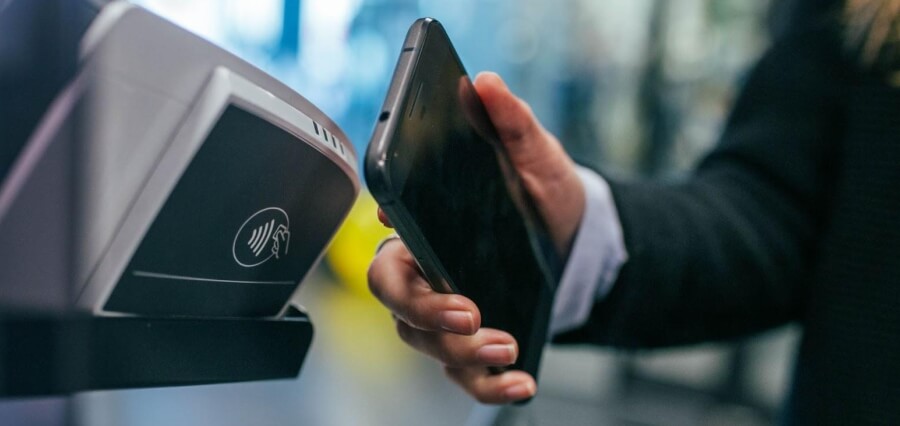The advent of financial technology (fintech) and mobile banking is revolutionizing business operations. These innovations are not only making financial services more accessible but also enhancing efficiency, reducing costs, and enabling businesses to scale in unprecedented ways. A key component of this transformation is the implementation of advanced security measures, which ensure that these digital services are safe and reliable. This article explores how fintech and mobile banking are reshaping business operations and the critical role of advanced security measures in this evolution.
The Rise of Fintech and Mobile Banking
Fintech refers to the integration of technology with financial services, offering solutions that range from mobile payments and online banking to blockchain and artificial intelligence (AI) in finance. Mobile banking, a subset of fintech, allows users to conduct financial transactions via smartphones and other mobile devices. Together, these technologies have democratized access to financial services, making them more convenient and user-friendly.
Enhancing Efficiency and Reducing Costs
One of the most significant benefits of fintech and mobile banking is the enhancement of operational efficiency. Traditional banking processes often involve cumbersome paperwork, time-consuming procedures, and physical branch visits. Fintech solutions streamline these processes by digitizing and automating them. For example, mobile banking apps enable users to transfer money, pay bills, and check account balances instantly, eliminating the need for manual intervention.
Moreover, fintech solutions often leverage AI and machine learning to provide personalized financial services. AI-driven chatbots, for instance, can handle customer inquiries round the clock, reducing the need for extensive customer service teams. Machine learning algorithms can analyze transaction data to offer tailored financial advice, improving customer satisfaction and loyalty.
Cost reduction is another critical advantage. By automating routine tasks, businesses can save on labor costs and reduce human error. Additionally, fintech solutions typically have lower overhead costs compared to traditional banking, as they do not require physical infrastructure. These savings can be passed on to customers in the form of lower fees, making financial services more affordable.
Enabling Business Scalability
Fintech and mobile banking also play a crucial role in enabling businesses to scale. Small and medium-sized enterprises (SMEs), in particular, benefit from the ease of access to financial services that fintech provides. Online lending platforms, for example, offer quick and easy access to capital, helping businesses to expand without the lengthy approval processes associated with traditional loans.
Furthermore, mobile banking facilitates global transactions, allowing businesses to reach international markets. With just a smartphone, business owners can manage their finances, process payments, and track expenses from anywhere in the world. This flexibility is essential for companies looking to grow and compete in a globalized economy.
Advanced Security Measures: A Cornerstone of Digital Finance
As fintech and mobile banking become more prevalent, ensuring the security of these platforms is paramount. Cybersecurity threats, such as data breaches and fraud, pose significant risks to financial institutions and their customers. To address these challenges, advanced security measures are being implemented to safeguard sensitive information and maintain user trust.
One of the key security measures is encryption. Financial data transmitted over mobile banking apps and fintech platforms is encrypted, making it unreadable to unauthorized parties. This ensures that even if data is intercepted, it cannot be exploited.
Another critical measure is multi-factor authentication (MFA). MFA requires users to verify their identity through multiple methods, such as passwords, biometric scans (fingerprints or facial recognition), and one-time passcodes sent to their mobile devices. This adds an extra layer of security, making it more difficult for cybercriminals to gain unauthorized access.
Blockchain technology is also making waves in fintech security. Blockchain offers a decentralized and immutable ledger, which makes it highly resistant to tampering and fraud. Transactions recorded on a blockchain are transparent and traceable, providing an additional layer of security and accountability.
Artificial intelligence and machine learning are further enhancing security measures. These technologies can detect unusual patterns and behaviors in real-time, identifying potential fraud and security breaches before they cause significant damage. For example, AI algorithms can monitor transaction data for anomalies that might indicate fraudulent activity, such as unusually large transactions or transactions from unfamiliar locations.
The Future of Business Operations with Fintech and Mobile Banking
The integration of fintech and mobile banking into business operations is just the beginning. As these technologies continue to evolve, they will bring about even more profound changes. The ongoing development of AI, blockchain, and other advanced technologies promises to enhance the capabilities of fintech solutions, making them even more secure, efficient, and user-friendly.
For businesses, this means staying ahead of the curve by adopting these innovations and integrating them into their operations. The benefits are clear: increased efficiency, reduced costs, and the ability to scale and compete in a global market. However, it also requires a commitment to maintaining robust security measures to protect sensitive information and build trust with customers.
Conclusion
Fintech and mobile banking are transforming business operations by enhancing efficiency, reducing costs, and enabling scalability. The adoption of advanced security measures is crucial in this digital transformation, ensuring that these technologies remain safe and reliable. As businesses continue to embrace fintech and mobile banking, they are not only improving their operational capabilities but also positioning themselves for future growth and success. The future of business is digital, and fintech and mobile banking are at the forefront of this evolution.


